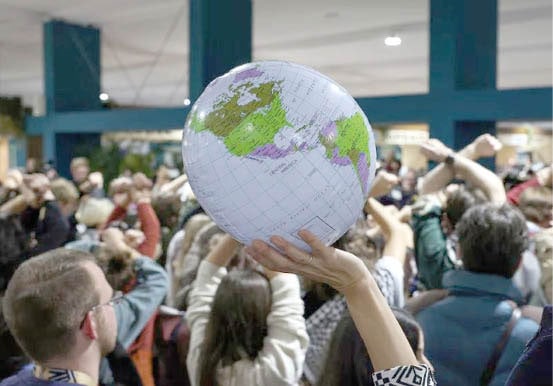The European Union, the US and other wealthy countries raised their offer of climate funding for developing nations to $300 billion a year at COP29 on Saturday, in a bid to unlock increasingly tense negotiations already a day into overtime.
The UN climate summit had been due to finish on Friday but ran into extra hours as negotiators from nearly 200 countries – who must adopt the deal by consensus – tried to reach agreement on a funding plan for the next decade.
It was not clear if the revised offer would be enough to lead to a deal, but negotiators from developing countries and island nations on Saturday aired frustration over a process they said was not inclusive, and temporarily walked out of talks. A $250 billion proposal, drafted by Azerbaijan’s COP29 presidency on Friday, was dismissed as woefully insufficient by developing countries, reeling from the soaring costs of storms, floods and droughts fuelled by climate change.
COP29 has laid bare divisions between wealthy governments constrained by tight domestic budgets and developing nations, while past failures to meet climate finance obligations have also made developing countries mistrustful of new promises.
The new goal is intended to replace developed countries’ previous commitment to provide $100 billion in climate finance for poorer nations per year by 2020. That goal was met two years late, in 2022, and expires in 2025. Five sources with knowledge of the closed-door discussions said the EU had agreed it could accept the higher number of $300 billion a year. Two of the sources said the United States, Australia and Britain were also on board.
A European Commission spokesperson and an Australian government spokesperson both declined to comment on the negotiations. The US delegation at COP29 and the UK energy ministry did not immediately respond to requests for comment.
With no formal update yet of the deal draft from the COP29 presidency, the mood was tense among negotiating groups.
“There is no clarity on the way forward. There is no clarity on the political will that we need to get out of this,” said Panama’s lead negotiator, Juan Carlos Monterrey Gomez.—Agencies










